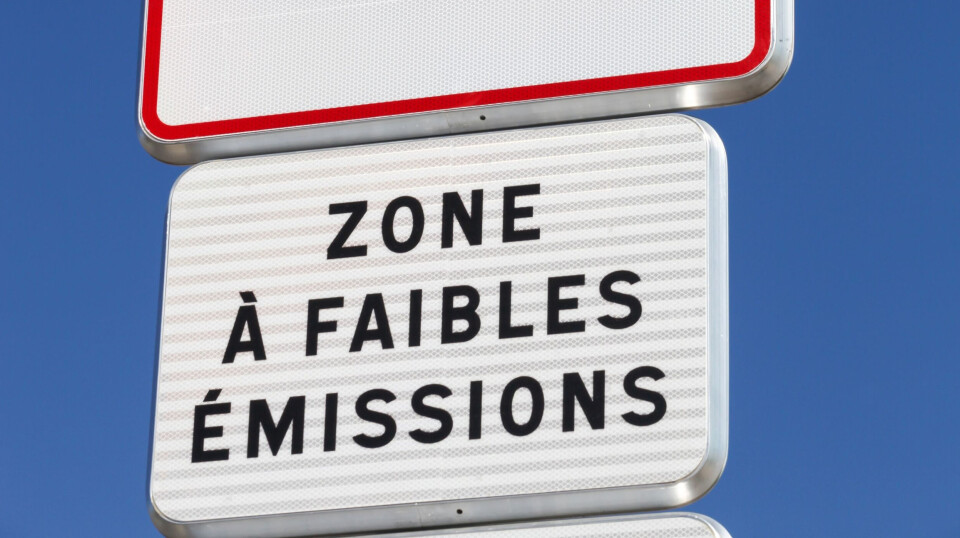-
Transavia to replace Air France for Nice-Orly flights
Up to eight return journeys a day to be offered by the budget carrier
-
Is this the end of free mountain rescue in France?
A new report says that charging for services is ‘legitimate and necessary’
-
How France’s new food strategy aims to change the national diet
The plan outlines new goals for meat consumption
France to automate low-emission zone checks and fines by 2024
We explain, and recap the help available to people in France who want to convert their vehicle into a greener model, or buy a new electric vehicle

France’s government wants to automate fines given to drivers of polluting vehicles in low-emission zones (zones à faibles émissions, ZFE) from 2024.
Read also: Confusion over low-emission driving zones in France
A total of 43 urban areas are set to have a ZFE in place within the next three years, affecting at least 150,000 residents. The main aim is to quickly ban entrance to the most polluting vehicles, to improve air quality, and reduce pollution.
The ZFE government commission has announced that a system of ‘automated checks and sanctions’ will be installed in the urban areas by the second quarter of 2024.
It is not yet certain how the system will work, such as whether it will have cameras in place.
Ecology Minister Christophe Béchu has said that "technical characteristics of the selected projects will be presented when they are known". He also said that people who break the rules will likely be subject to a class 3 fine of €68.
Clément Beaune, the Minister for Transport, said: "The ZFEs are a necessity for ecological and public health reasons. We must do everything we can to ensure that an automatic sanction check is developed as quickly as possible.”
Read also: French speed cameras collect €859million in fines in 2021
ZFEs in France
There are already ZFEs in 11 urban areas in France.
Local authorities have the right to decide the perimeter of each, but must stick to the gradual calendar that dictates how quickly vehicles can be banned from the zone, according to European air quality norms.
This will include:
-
From January 1, 2023, vehicles with Crit'Air 5 (diesel vehicles made before 2001)
-
January 1, 2024, vehicles with Crit'Air 4 (diesel before 2006)
-
January 1, 2025, vehicles with Crit'Air 3 (diesel before 2011 and petrol before 2006)
Read more: A guide to Crit’Air stickers in France
Government support for eco-friendly vehicles
To help individuals to adapt, the government is to offer financial aid to help drivers ‘greenify’ their vehicles to make them less polluting, whether by converting their existing vehicles or buying new ones.
For example, President Emmanuel Macron has announced an electric vehicle grant of up to €7,000 to help with purchases for less-well-off households. Similarly, the standard grant of up to €5,000 (which is set to be reduced from €6,000 in 2023) may be topped up by an extra €1,000 for people who live in a ZFE.
Read more: Increased aid announced for electric car purchases in France
Read more: €6,000 grant to help buy an electric car in France extended all year
And from 2024, zero-interest loans of up to €30,000 are also set to be available for the purchase of a new vehicle or leasing of up to €100 per month for an electric car.
Mr Beaune said: “All in all, these schemes represent an unparalleled effort [compared to the rest of Europe]. Up to €1.2billion is to be assigned to the ‘greenifying’ of vehicles in 2023.”
Related articles
Renting an electric car in France: where, how and how much?
Cost, lack of charging places: blocks on buying electric car in France
Thinking of buying an electric car in France? Now may be a good time
























